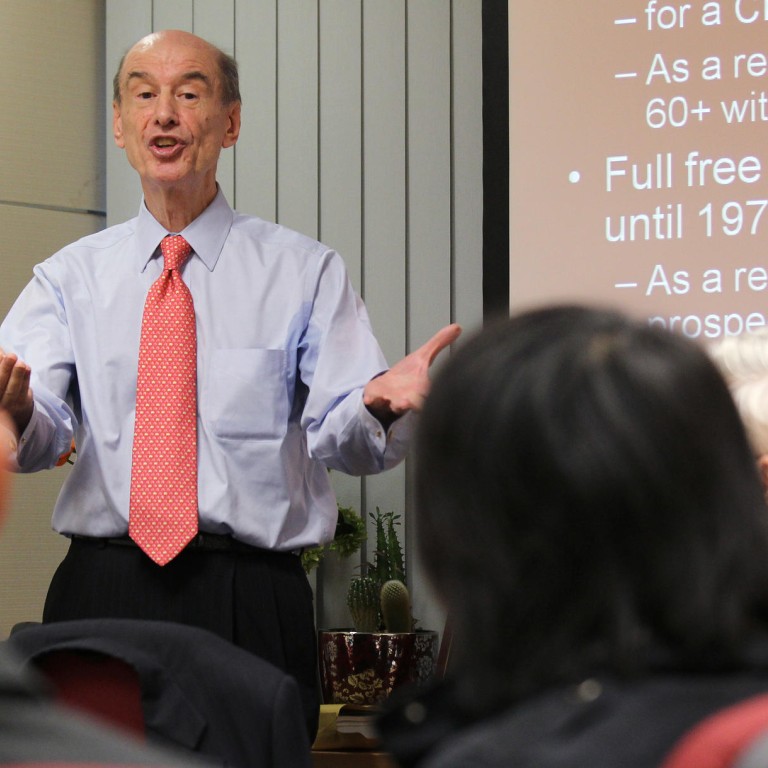
Myths about poor justify Hong Kong's 'third world' spending on social welfare
Economist says convenient myths justify city's third-world level of spending on social welfare
Deliberate demonising of social welfare and labour protection is behind the city's backward policies in these areas, according to Leo Goodstadt, the former head of the Central Policy Unit.
Goodstadt, who served as the chief of the government think tank from 1989 to 1997, said common myths that people were poor because they were lazy, or that social welfare would lead to government bankruptcy, were unfounded but used incessantly as reasons against the adoption of a more comprehensive social-security system.
"There has always been huge resistance to welfare in Hong Kong's history, despite the terrible conditions," Goodstadt said yesterday at City University, where he delivered a lecture on social welfare and labour policies from the 1930s to the present.
Hong Kong's social spending was still at third-world standards, he said, even though its large fiscal reserves could easily accommodate more of such outlays. What social spending there has been in the city's history has mostly been the colonial government's response to crises - like the Shek Kip Mei fire in 1953 and the Star Ferry riots in 1966.
"Welfare has a low political priority when compared to autonomy and integrity issues," Goodstadt said, pointing to how issues like the Article 23 security legislation and national education have been at the forefront of the political agenda.
He believes that once Hong Kong realises that its way of life will survive, then attention will turn to welfare and how to improve the quality of life.
He also said the government avoided providing figures on poverty, as that would expose how terrible the situation was.
Goodstadt criticised the government for dragging its feet on immediate measures to relieve poverty. And he said establishing a poverty line would not make much difference - it would simply create "endless arguments about how to define poverty" without offering solutions.
